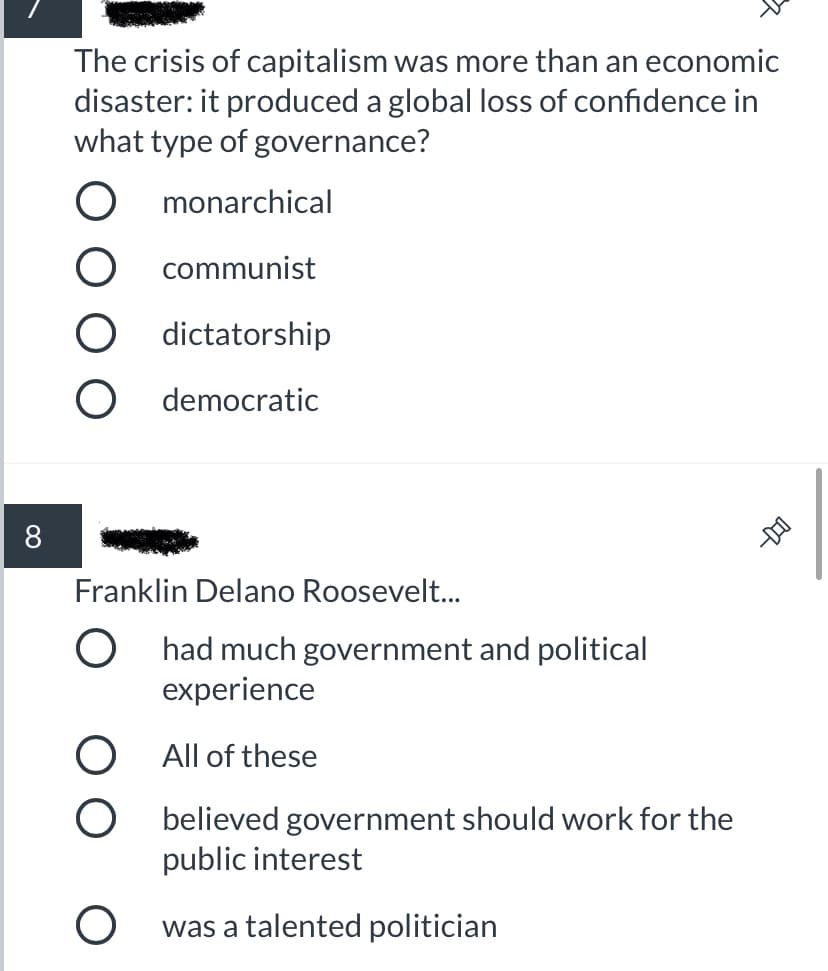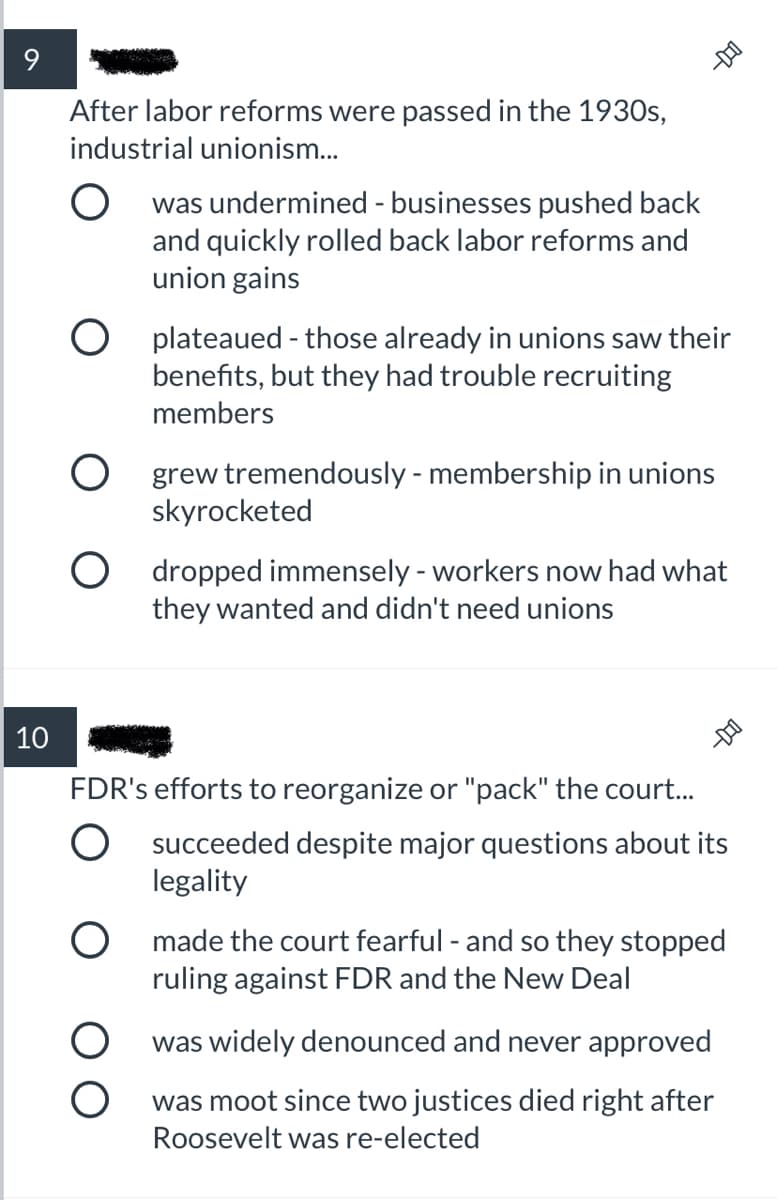The crisis of capitalism was more than an economic disaster: it produced a global loss of confidence in what type of governance? O monarchical O communist O dictatorship O democratic 8 Franklin Delano Roosevelt. O had much government and political experience O All of these O believed government should work for the public interest was a talented politician
The crisis of capitalism was more than an economic disaster: it produced a global loss of confidence in what type of governance? O monarchical O communist O dictatorship O democratic 8 Franklin Delano Roosevelt. O had much government and political experience O All of these O believed government should work for the public interest was a talented politician
Related questions
Question
Answer the following questions attached

Transcribed Image Text:The crisis of capitalism was more than an economic
disaster: it produced a global loss of confidence in
what type of governance?
monarchical
communist
dictatorship
democratic
8
Franklin Delano Roosevelt..
O had much government and political
experience
O All of these
O believed government should work for the
public interest
was a talented politician

Transcribed Image Text:9
After labor reforms were passed in the 1930s,
industrial unionism.
O was undermined - businesses pushed back
and quickly rolled back labor reforms and
union gains
O plateaued - those already in unions saw their
benefits, but they had trouble recruiting
members
O grew tremendously - membership in unions
skyrocketed
O dropped immensely - workers now had what
they wanted and didn't need unions
10
FDR's efforts to reorganize or "pack" the court..
O succeeded despite major questions about its
legality
O made the court fearful - and so they stopped
ruling against FDR and the New Deal
was widely denounced and never approved
was moot since two justices died right after
Roosevelt was re-elected
Expert Solution
Introduction
Since you have asked a multiple question we will solve the first question for you.If you want any specific question to be solved then please specify the question number or post only that question.
The origins of capitalism as an economic system may be traced back to the 16th century, with Adam Smith being the first theorist of what we now call capitalism. Capitalism is a profit-driven economic system based on private ownership of the means of production. However, the capitalist crisis was more than an economic tragedy.
Trending now
This is a popular solution!
Step by step
Solved in 4 steps
